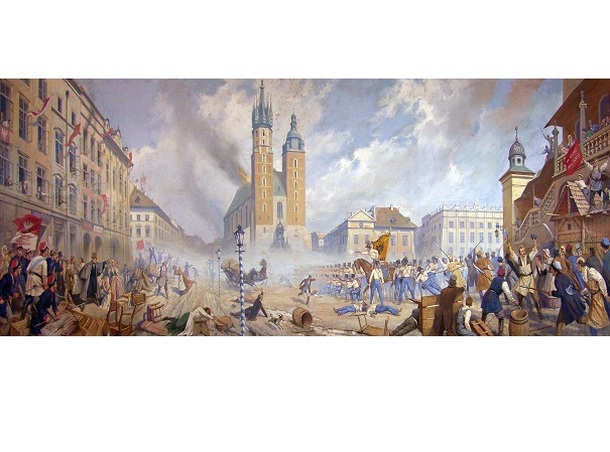The Free City of Krakow: In Search of Modernity

The Free, Independent and Strictly Neutral City of Krakow and its Surrounding Areas were established on 3rd May 1815. The last patch of independent Poland, which had survived for more than 31 years, was incorporated into Habsburg Monarchy on 6th November 1846. The 200th anniversary of the establishment of the state provides the starting point for the implementation of an exhibition The Free City of Krakow – in search of modernity. Its political history and geographical features provide the background for depiction of the nucleus of modernity initiated during that period. The stabilisation of living conditions, autonomy and liberal system of the Surrounding Areas, as well as the ambitions of the authorities and more enlightened citizens constitute the basis for the source of progress. The title “search” means that the modernity may not be visible at first sight. The 31st anniversary of the Republic of Krakow marks the cessation of the city’s stagnation, in addition to being the foundation for Krakow throughout subsequent decades. The idea of the exhibition is to present the process of modernity creation in several areas of the city life, which the exhibition displays as six thematic segments separate as far as the space and arrangement are concerned. The foregoing has been obtained via careful selection of original exhibits and archival materials, as well as the selection of proper artistic and visual arrangement elements for each subject matter.
The first segment of the exhibition, entitled The State of the Free City of Krakow, constitutes the introduction into the genesis, system and geography of the city and its Surrounding Areas. The second part is devoted to the issue of modernisation of Krakow, its urban arrangement, architectural tissue and implementation of the first solutions from the field of engineering and communication. The third segment familiarises the visitor with the subject matter of modern patriotism and national memory, whose sources were the solemn funeral ceremonies of Józef Poniatowski and Tadeusz Kościuszko. The fourth part is a panoramic presentation of the Free City inhabitants, emphasising the creation and development of new social groups. The dramatic cessation of the miniature republic was presented in the fifth part devoted to Krakow Uprising in 1846. The sixth segment of the exhibition constitutes a reflection on the preserved and legible heritage of the epoch.
This event happens in Krakow Historical Museum